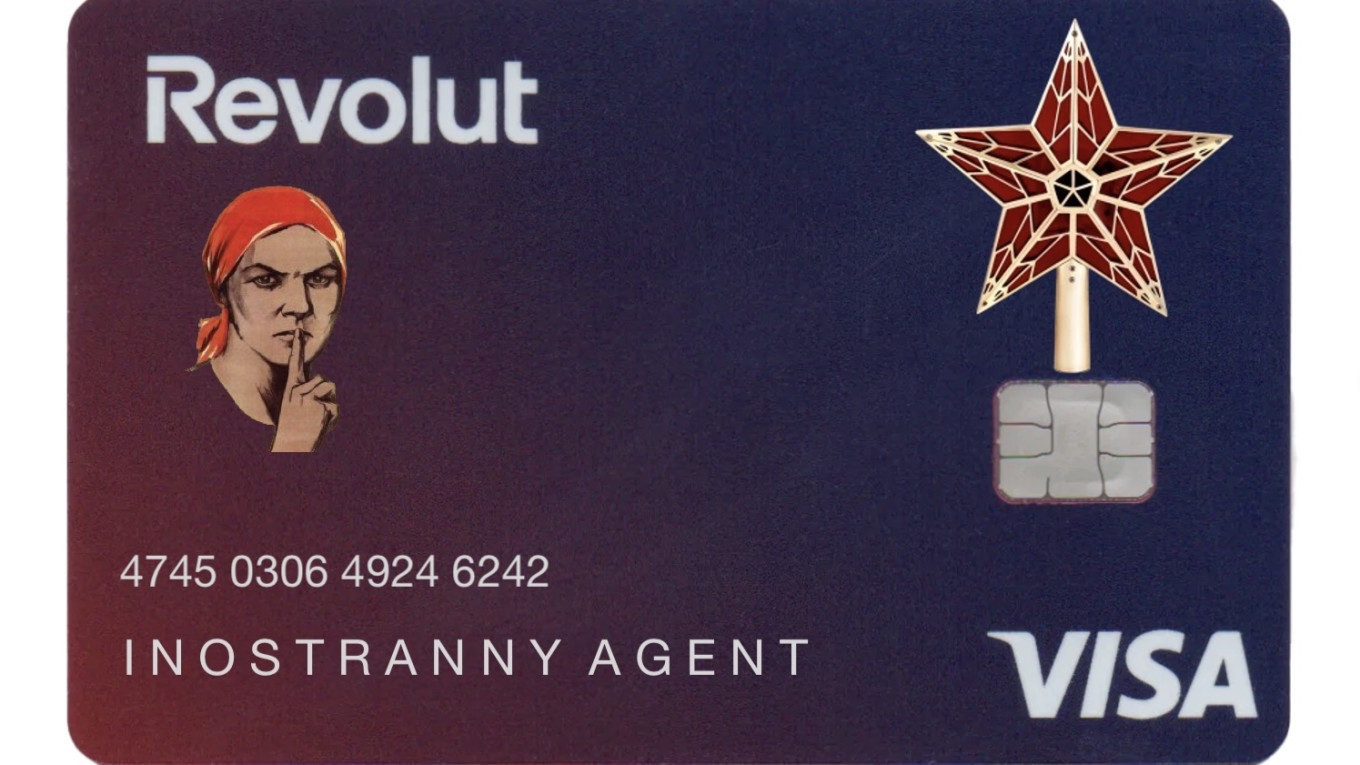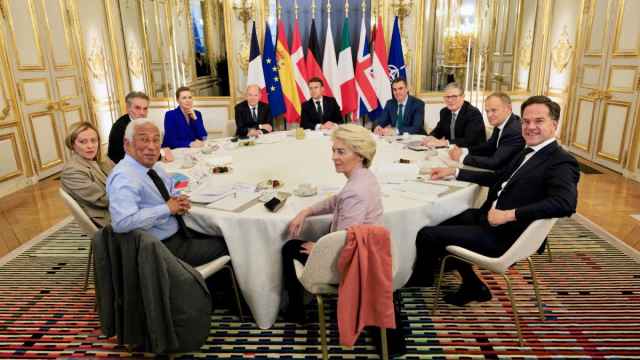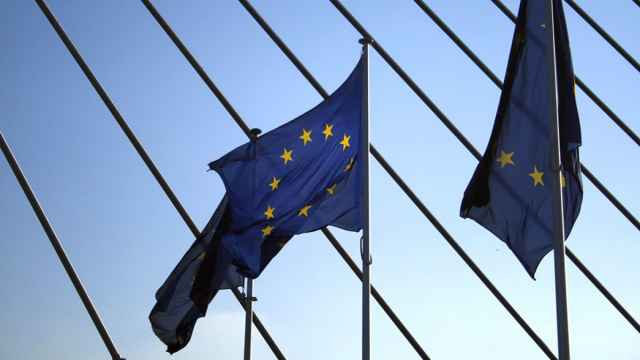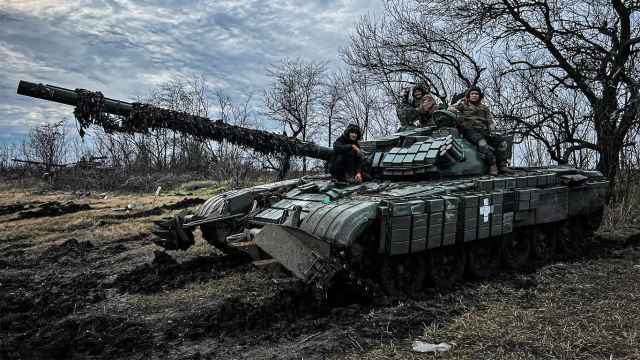“Europe failed…”
You can fill in the blank in that sentence with almost anything, from digital sovereignty, responding to the war in Ukraine since 2014, delivering on green transition, showing moral clarity on Gaza, handling the housing crisis or the rise of right-wing populism. The list goes on.
Today I’m adding one more failure, which feels deeply personal. Europe failed in the politics of care — who is cared for, who receives compassion and legal protection and, most importantly, who is left behind.
From the start of November, Revolut began blocking accounts of Russian and Belarusian nationals living in the EU, regardless of whether they are there on humanitarian visas, as students or waiting for residence permits. The company says it is complying with the EU’s latest sanctions package.
But Revolut has gone further than other banks, as no legislation forbids legal residents from making ordinary payments. The result: people legally in the EU find their money frozen and their lives upended. I’m one of them. And I feel people like me have once again been left out of Europe’s promises.
What matters here is that for many Russians in the EU, Revolut was one of the few financial companies still willing to work with them. After the full-scale invasion and the wave of sanctions that followed, most traditional banks across Europe began turning away anyone with a Russian passport, citing “risk” and “compliance,” even when the customer lived there lawfully.
The result is that people with valid residency or in the process of obtaining it find themselves unable to open traditional bank accounts, transfer salaries, pay rent or receive funds, forcing them to borrow, use cryptocurrencies or live off cash.
Though some Russian nationals have since been given the opportunity to upload documents and reopen their accounts, the damage was already done. The abrupt freezes and opaque rules show how regulators and companies often swing the hammer first, then ask questions later. Yet you’ll hardly find this mentioned in Western media.
I’m an activist and researcher, not a lawyer. But above all, I’m a Russian who had to leave my country because of my political beliefs — and for acting on them — which I think gives me firm moral ground to say this. Corporate lawyers perform the same kind of legal gymnastics I know too well from the Kremlin: bending the rules to justify whatever they want.
Revolut is, of course, a private company. But my background in international relations means I cannot ignore the bigger picture. When EU institutions stay silent while a major fintech treats long-term legal residents as collateral damage, it feels like Brussels is closing the doors.
For many of us, it’s a double punishment: penalized for fleeing Russia instead of overthrowing Putin, while being criminalized in Russia for trying to overthrow him. Yet still, we keep hearing accusations that Russians don’t protest enough.
I always ask people not to romanticize resistance against authoritarianism. Most people can never have a neat, cinematic moment of courage. Under Putin’s regime, opposition takes countless quiet — yet still risky — forms, often working underground. Even singing in the streets has become a form of resistance that can get you detained.
If you don’t live in that reality, it’s hard to understand the meaning of these quiet acts. They may not be loud, but they are resistance all the same — and they come at a huge cost, with real, often brutal consequences. And still, we did everything we could to stop Putin’s war: not from a position of safety, but from within an authoritarian state that punishes even the smallest act of defiance.
I don’t know where to begin or where to end the list of suffocating restrictions and penalties in Russia, which are woven into every part of life, all the time. You never know when you’ve stepped over the red line — that’s authoritarianism in a nutshell. You’d think a continent with Europe’s experience of dictatorships would know that.
You’d think they’d also know that LGBTQ+ people are criminalized as part of a mysterious so-called extremist “international LGBTQ+ movement.” Even small visible signs like a rainbow earring, a pin or a sticker have become grounds for persecution. In some regions, like Chechnya, queer people face life-threatening violence. Yet some EU states still deport Chechen asylum-seekers back to Russia, despite the credible, or rather inevitable, risk of imprisonment or worse.
The “foreign agent” label is used to silence anyone remotely connected to a political or civic agenda. It ties organisations’ hands, cuts off their funding and forces many to shut down.
Since 2022, Russians wanting to help others have had only two options: go underground or into exile. Anyone — teachers, journalists, ordinary citizens — can now be an enemy within.
By now, the Kremlin has even started turning on its own supporters, including pro-war correspondents and regional officials. One of them — the governor of the Kursk region, where I’m from — took his own life before he could be arrested, possibly because death looked kinder than a Russian prison.
Prominent critics — even those who are not directly involved in politics — are now labelled “terrorists” for any real or alleged ties to opposition networks. In Russia, punishment can go far beyond a prison sentence: it can mean torture, the good old Soviet-style punitive psychiatry or dying behind bars.
And God forbid you’re a political figure. Everyone now knows about IK-3, Kharp — the godforsaken prison in Russia’s far north where Alexei Navalny was killed. But there are hundreds of other political prisoners you’ve never heard of.
Does this answer your question about why Russians don’t flood the streets? Why did they flee instead of toppling Putin’s regime on camera, while the last of Russia’s independent news outlets were being shut down? Why do they search for safety, believing they’d find it in the West, only to have the door slam in their face halfway through?
Maybe the answer doesn’t sound heroic enough. But it’s an honest one and a reason we deserve compassion.
Yet today, compassion seems to be in short supply. Revolut blocking the accounts of Russian nationals isn’t just a question of one company’s compliance. With the EU remaining silent, it’s a question of whether compassion still has a place in Brussels’ policy toward those who fled because they refused to take part in the very war the EU condemns.
I grew up admiring the EU: its inclusive democratic institutions, its promise of rule of law and upholding human rights, its ability to bring relative peace and prosperity to a formerly fragmented continent.
Europe still can — and should — do better. I’m not a policymaker, but I can see where to start: clarify the sanctions guidance, demand transparency from financial institutions and make sure legal residents aren’t punished for simply existing.
Beyond that, Brussels must recognize and protect anti-war Russians: humanitarian visa-holders, students, family-reunification applicants and draft-dodgers who face real (and I repeat, real) persecution. Europe can also do more to support both grassroots and larger initiatives helping exiles and documenting abuses inside Russia, because we are the very people Europe will be working with once Putin’s regime falls.
If anti-war Russians receive no support or keep getting punished simply for the passports they hold, Europe ends up doing Putin’s work for him. He has spent years destroying “traitors.” Now it seems Europe might be the one to finish the job. Putin doesn’t have to kill or imprison: bureaucracy, indifference and rejection erase lives too.
Don’t shut the doors on Russians who fled in opposition to the war. Many of us are loudly outspoken activists, but those who stay quiet are still vulnerable. We are here because we believed — and still believe — in values Europe says it defends.
Europe failed in this small but crucial way: by choosing bureaucracy over compassion, risk-aversion over care and sometimes deliberate indifference over responsibility. The EU and Revolut can still choose otherwise. Please, choose otherwise.
A Message from The Moscow Times:
Dear readers,
We are facing unprecedented challenges. Russia's Prosecutor General's Office has designated The Moscow Times as an "undesirable" organization, criminalizing our work and putting our staff at risk of prosecution. This follows our earlier unjust labeling as a "foreign agent."
These actions are direct attempts to silence independent journalism in Russia. The authorities claim our work "discredits the decisions of the Russian leadership." We see things differently: we strive to provide accurate, unbiased reporting on Russia.
We, the journalists of The Moscow Times, refuse to be silenced. But to continue our work, we need your help.
Your support, no matter how small, makes a world of difference. If you can, please support us monthly starting from just $2. It's quick to set up, and every contribution makes a significant impact.
By supporting The Moscow Times, you're defending open, independent journalism in the face of repression. Thank you for standing with us.
Remind me later.








